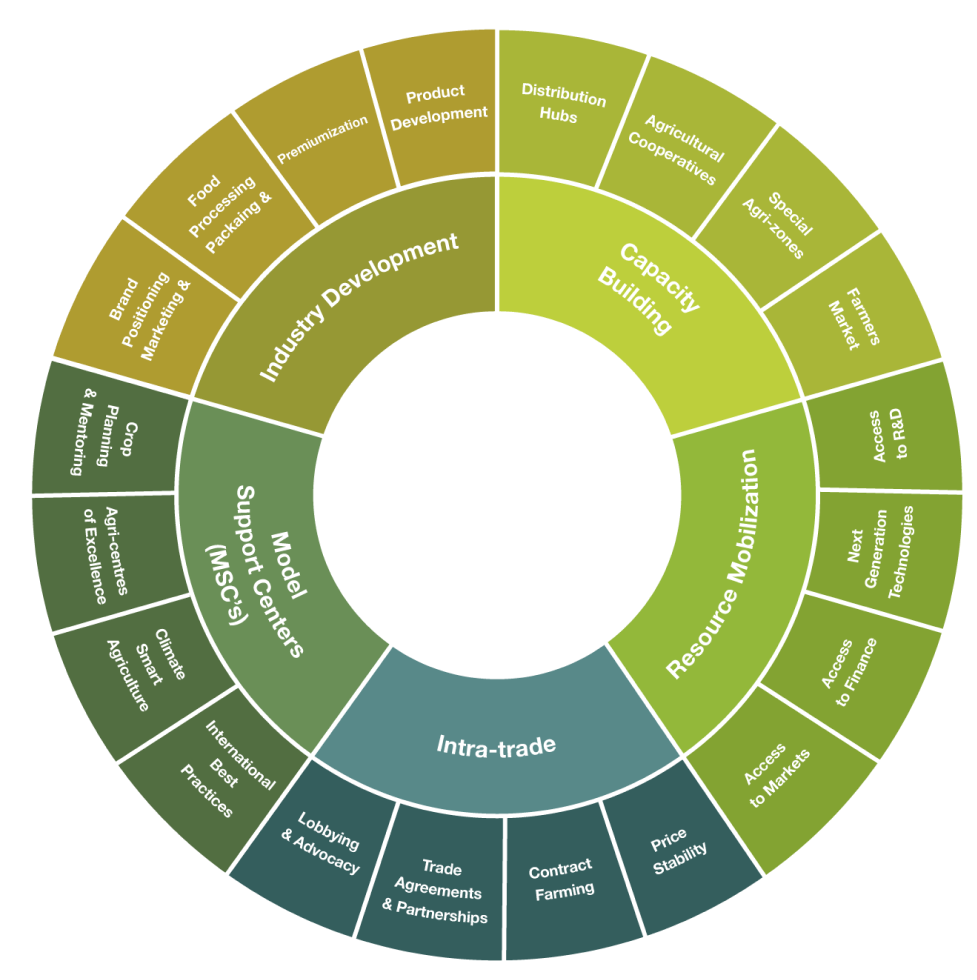Distribution Hubs
These hubs aim to increase food distribution efficiency and reduce waste, addressing food security challenges by creating localized storage facilities and fostering intra-OIC trade.
Trade & Economic Impact
Distribution Hubs are not limited to individual countries; they can form a network across OIC nations, promoting self-sustainability, reducing reliance on food imports, fostering economic development, generating job opportunities, empowering local economies, and stimulating intra-OIC trade while supporting local agriculture.
Localized Storage
High Efficiency
Distribution Hubs aim to increase food distribution efficiency and reduce waste, addressing food security challenges by creating localized storage facilities and fostering intra-OIC trade.
These hubs can significantly revamp food distribution in OIC countries by establishing localized storage facilities, facilitating access to both B2B and B2C markets, and curbing the high food wastage rates (30%-50%) in the region.
Distribution Hubs can significantly revamp the way OIC countries handle their food distribution, leading to increased efficiency and reduced waste. By establishing localized storage facilities, these hubs would facilitate access to both B2B and B2C markets, thereby adding critical value to their supply chain. Given the high food wastage rates (30%-50%) in OIC countries, these hubs could play a key role in curbing this issue by ensuring better management and distribution of food resources.
In addition, the concept of Distribution Hubs isn't limited to the confines of a single country. A network of interconnected hubs across OIC nations would lay the groundwork for improved intra-trade, leading to self-sustainability and reduced reliance on imports. Besides fostering economic development, the hubs would also generate job opportunities, empower local economies, and stimulate intra-OIC trade, such hubs could support local agriculture by forming community groups and creating financially viable market channels for smaller farmers.
A Look Into Distribution Hubs
Objective Key Results (OKR) Methodology
This strategic approach ensures effective utilization of resources, promotes accountability, and facilitates the achievement of key objectives and measurable outcomes. Implementing the Objectives and Key Results (OKR) methodology within the context of IOFS's strategy can provide a structured approach to achieving its mission and objectives.
It emphasizes setting ambitious, yet achievable, objectives that drive meaningful impact. In the context of strategy implementation, this means identifying goals that align with the deliverables.
OKRs provide a structured approach to defining and communicating the objectives and desired outcomes of a PPP project.
Key Results are specific, measurable outcomes that help track progress toward the defined objectives involving quantifiable metrics such as completion of infrastructure projects on time, cost savings achieved through efficient operations.
This transparency builds trust and accountability, as progress is visible to both the public and private sectors. This accountability encourages collaboration and ensures that all parties remain committed to achieving the agreed-upon outcomes.
The OKR methodology encourages frequent reviews and adjustments of goals based on changing circumstances.
Regular reviews of OKRs provide opportunities to identify areas where adjustments or improvements are needed, fostering innovation in both service delivery and project execution.


Our Value Programs
Get in touch
Almukarramah team can’t wait to answer any questions you might have for Trade57!



